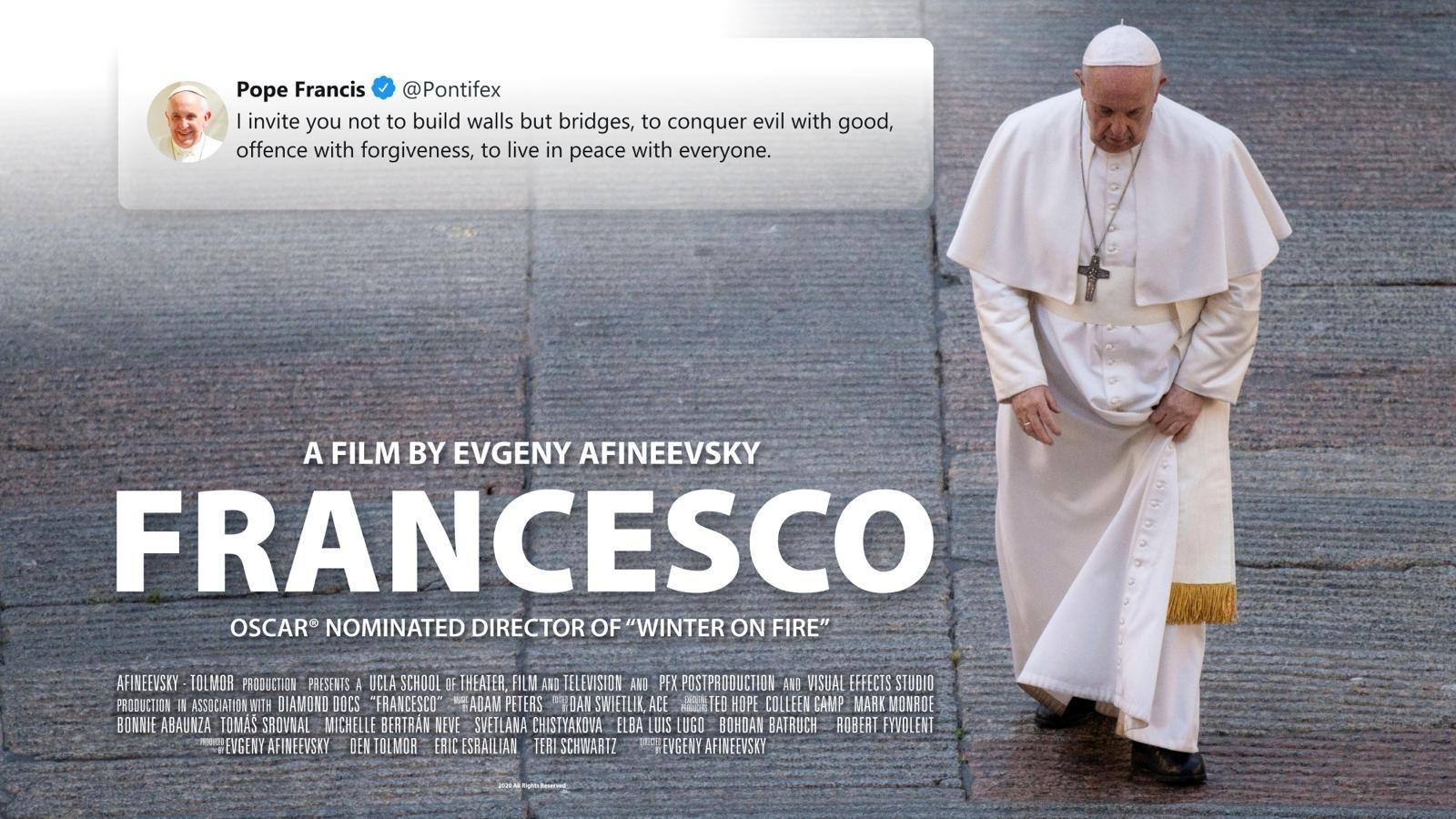ROME – Nearly a year after a Vatican media fiasco involving snippets of commentary by Pope Francis spliced together in a high-profile documentary to create a soundbite endorsing same-sex civil unions, the Vatican is now screening that same documentary for a group of migrants and refugees.
On Monday, Francesco, produced by Russian Jewish filmmaker Evgeny Afineevsky, will be shown in the Vatican’s new synod hall for a group of 130 migrant and refugee families.
While hosting the poor and less fortunate for special VIP events inside Vatican walls has become a hallmark of Francis’s papacy, news of the screening caused a collective raising of eyebrows for those who remember the contretemps that unfolded shortly after the film’s release last year.
Released in late October 2020, the documentary includes a 20-second clip Afineevsky claimed came from fresh interviews conducted with the pope specifically for the film in which Francis said that homosexual individuals “have the right to be in a family. They are children of God.”
“You can’t kick someone out of a family, nor make their life miserable for this. What we have to have is a civil union law; that way they are legally covered,” the pope is heard saying in the clip.
Immediately after the film went public, the comments made headlines around the world, with papers everywhere announcing that Pope Francis had become the first pope in history to endorse same-sex civil unions.
Yet in the days after the documentary’s release, doubt began to arise among the Vatican press corps as to the actual origins of the interview.
It was eventually established that the pope’s remarks were not made in a new interview given for the Francesco film, as Afineevsky had claimed, but taken from an interview the pope had given to Mexican journalist Valentina Alazraki in 2019 and spliced together in a way that seemed like Francis was pushing for same-sex civil unions.
The 20-second clip of the documentary in question was not released with the publication of the 2019 interview because the Vatican controlled the cameras and editing of the tape for Alazraki’s interview, and when they sent the file back to her, the pope’s comments on civil unions had been edited out.
Amid the ensuing media firestorm, the Vatican communications department issued a memo to staff to refrain from reporting or commenting on the issue, insisting that it had launched a review “to deal with the media crisis.”
Shortly after the documentary fiasco, the Vatican’s Secretariat of State sent a letter to bishops’ conferences around the world attempting to explain the remarks and arguing that his words taken out of context and that his position does not constitute a change in Church teaching on the issue.
RELATED: Vatican letter on pope’s civil union remarks assures doctrine unchanged
Other than the letter to bishops’ conferences, which was not released to the public, the Vatican has never issued any statement clarifying the incident or the pope’s remarks, and Pope Francis himself has offered no explanation, leading many to wonder what the pope’s actual position on the matter is.
While still serving as Archbishop of Buenos Aires, Francis backed civil unions for same-sex couples as an alternative to same-sex marriage.
The Catholic Church teaches that homosexual acts are “intrinsically disordered,” but that gay people themselves must be treated with dignity and respect.
Afineevsky, who is openly gay, began working both official and unofficial channels for the documentary in 2018, and wound up developing a close relationship with Francis, who gave him a birthday cake during an Oct. 31, 2020, private audience at the Vatican after the film’s release amid the media backlash.
Paolo Ruffini, prefect of the Vatican’s communications department, and Monsignor Lucio Ruiz, secretary of the department, posed with Afineevsky for an awards ceremony at the Vatican on Oct. 22, 2020, after Francesco won the Kineo cinema prize.
The Vatican got into hot water again this spring when the Congregation for the Doctrine of the Faith in March published a response to a dubia, or “doubt,” as to whether the Catholic Church could offer blessings for same-sex unions.
In its response, the Congregation said that same-sex blessings are “not legitimate,” as homosexual unions are “not ordered to the Creator’s plan” for marriage between a man and a woman.
The remarks were met with widespread backlash, with many LGBTQ communities accusing the Vatican of homophobia.
Shortly after, Pope Francis struck a different chord when he penned a short, hand-written note to Jesuit Father James Martin, known for his ministry with the LGBTQ community, thanking him for a June webinar on “Outreach LGBTQ Catholic Ministry” which saw the participation of roughly 1,000 people.
It is unknown exactly who organized Monday’s screening of the Francesco documentary, but it is likely that the Vatican communications department was involved.
The fact that it is happening at the Vatican, which after nearly a year still has not clarified the pope’s civil union remarks, has given some the impression that the film still enjoys papal endorsement despite the intense controversy surrounding the origin and nature of his civil union remarks.
Follow Elise Ann Allen on Twitter: @eliseannallen









